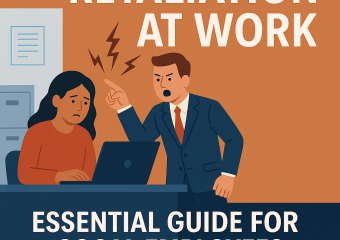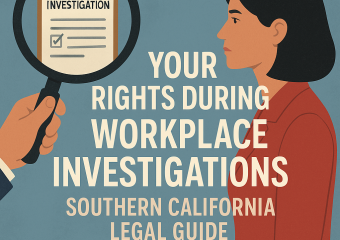When Partners Clash: Navigating and Resolving Conflicts in a Business Setting
Resolving Business Conflicts: Best Legal Advice
Resolving business conflicts legally is a critical skill that business partners must possess to ensure the longevity and success of their venture. Conflicts in business are inevitable. Differences in vision, management styles, or even personal values can lead to disputes that may impair business operations. Understanding how to navigate these conflicts constructively and legally can save businesses from potential downfall and foster a stronger partnership.
Understanding the Roots of Business Conflicts
Conflicts typically arise from several common sources in a business environment. These include financial disagreements, differences in business strategy or direction, and personal clashes between partners. Financial disputes might involve the allocation of profits, investment decisions, or discrepancies in financial contributions. Strategic conflicts often emerge from differing opinions on the company’s direction or operational approaches.
Recognizing the underlying cause of the conflict is the first step in resolving business disputes effectively and legally. This insight allows partners to address the root of the issue rather than just the symptoms, facilitating a more sustainable resolution.
Effective Communication: The First Line of Defense
Effective communication is essential in preventing and resolving disputes. Regular, structured meetings can help ensure all partners are aligned and have an opportunity to voice concerns in a constructive environment. When conflicts arise, it’s crucial to maintain open lines of communication. Partners should strive to listen actively and empathize with each other’s viewpoints, as understanding differing perspectives can facilitate easier resolutions.
Legal Frameworks and Agreements
One of the most proactive ways to manage disputes is to have a robust legal framework in place. This involves establishing clear legal agreements that outline each partner’s roles, responsibilities, and the procedure for handling disputes. These agreements often include buy-sell agreements, partnership agreements, and operating agreements that can include dispute resolution clauses specifying the steps to be taken when conflicts arise.
Such legal stipulations might recommend mediation or arbitration before taking any disputes to court, providing a structured pathway for conflict resolution that avoids the complexities and costs associated with litigation.
Resolving Business Conflicts Legally through Mediation and Arbitration
Mediation and arbitration are two effective legal methods commonly used to resolve business disputes outside of court. Mediation involves a neutral third party who helps facilitate a discussion between the partners to reach a voluntary agreement. It’s typically non-binding unless an agreement is reached and formalized in writing.
Arbitration, on the other hand, involves a neutral third party or an arbitrator who listens to both sides and makes a decision that is usually binding. Both options are less formal than court proceedings and can be more conducive to maintaining a positive business relationship post-dispute.
The Role of Legal Counsel
Consulting with legal counsel can provide invaluable guidance when resolving business disputes. Lawyers who specialize in business or corporate law can offer advice on legal rights and responsibilities and help navigate the complexities of business law. They can assist in drafting or reviewing agreements to ensure they are comprehensive and enforceable. Moreover, in scenarios where disputes cannot be resolved through mediation or arbitration, legal counsel can represent your interests in court.
Conclusion: Prioritizing Resolution and Relationship
While resolving business conflicts legally is crucial, preserving the business relationship must also be a priority. Approaching disputes with a win-win mindset, where each partner’s interests and concerns are addressed, can help ensure that the business remains strong and cohesive. Implementing structured conflict resolution mechanisms and seeking legal advice when necessary can save not only a business’s bottom line but also its operational harmony.
By acknowledging that conflicts are a part of the business landscape and preparing for them with the right legal tools and mindset, partners can navigate these challenges effectively, ensuring their business not only survives but thrives.




